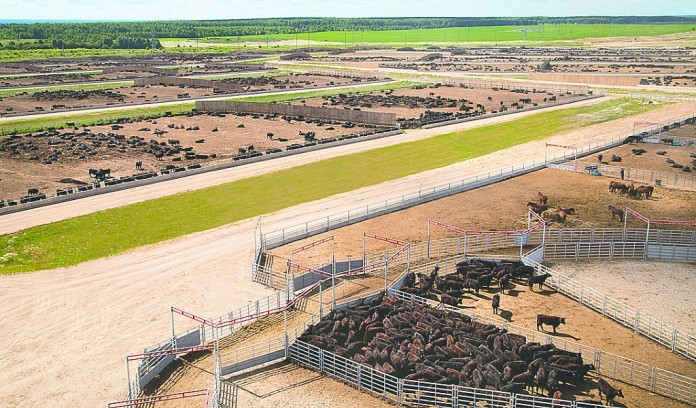
WOOSTER, Ohio — The Certified Angus Beef (CAB) brand began production and sales in Russia this spring, through licensed partner Miratorg Agribusiness Holding.
According to CAB President John Stika, most of those cows are commercial purebred Angus, sourced mainly from the United States over the last eight years, and spurred by Russian loan subsidies aimed at building a modern food supply chain.
A large share of the cattle belong to Miratorg.
About Miratorg
Founded in 1995 in Moscow, Miratorg is also involved in pork and poultry production. Company executives were familiar with CAB, which has exported product into Russia since 1998 until recent years. Officials also visited the U.S. to shop for Angus genetics and training in American ranch management. It is now a member of the American Angus Association.
In 2009, Miratorg began to build up dozens of cattle ranches south of Moscow in the Bryansk region. Its leadership team reached out to CAB in 2011 to explore mutual opportunities, which have been discussed in CAB board meetings since 2013.
Big step for CAB
“The decision to expand beyond North America for the first time was not taken lightly,” Stika said, “but we found much in common. It’s rare to have the opportunity to engage with people starting from scratch.”
“And while this partnership has great potential for Russian agriculture and consumers, it stands to strengthen the global reach and reputation of the Certified Angus Beef brand.
CAB did not set out to expand production into Russia or any other region, Stika added. But the huge, existing Russian investment in U.S. Angus genetics “provided the opportunity to ensure quality from the start.”
Beef imports still banned
USDA’s Foreign Agricultural Service (FAS) estimates more than $300 million in U.S. beef cattle sales to Russia in the last five years, most of that in 2012. In August 2014, however, Russia banned certain ag imports from the U.S. and other countries, including beef, pork, poultry, seafood, fruits and nuts, vegetables and most prepared foods. The ban, initially announced for one calendar year, has been extended until August 2016.
Miratorg capacity
Two 50,000-head feedyards and Miratorg’s 400,000-head annual capacity processing plant were completed in the last two years. These channel production from 140,000 Angus cows, primarily offspring of imported registered cattle and genetics. Such growth in the beef sector is in contrast to a continuing decades-long liquidation of the Russian cattle herd, mainly dairy or dual-purpose types not known for quality, Stika said.
After several trips to Russia, Stika said the scale and quality of build in just five years is “impressive.”
Certification
Carcasses certified in Russia must meet the same 10 quality standards established in the U.S. and also applied in Canada since 2000, Stika said.
“We have worked to implement systems and best practices that allow checks and balances and assure the integrity we all want.”
As in North America, all cattle in Russia are inspected. The country has no quality grading system, but the new processing plant uses the same carcass imaging technology used in North America to decide which beef earns the brand.
“The carcass grading images as well as video from strategically identified areas in the plant are live-streamed to our offices in Wooster, Ohio, where staff are committed to daily audits that verify integrity,” Stika said.
While U.S. quality grades have lately risen above 5% USDA Prime, the Miratorg herd starts at 20% to 25% hitting Prime-equivalent marbling scores.
Opportunity for growth
Certified Angus Beef does business with partners in 53 countries around the world. Production of the brand in Russia, initially focused on middle meats for foodservice customers, can grow with CAB’s role in market development in Russia (closed to U.S. beef since 2013) and in other countries like Saudi Arabia that now have limited access to the brand, Stika said.
“That kind of involvement positions us to protect the use and equity of our trademark in international markets.”










